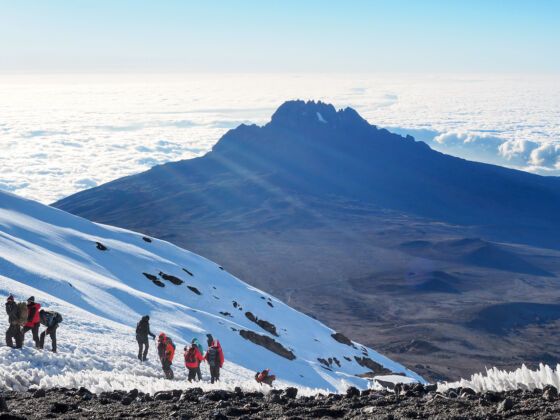One more deep breath and another step. I can see my goal.
I’m so close and then I’m there: the first person of the morning to reach the summit of Kilimanjaro. The sun breaks through the clouds and lights up the glaciers. I’m lucky enough to have arrived before the hoards of other climbers.
